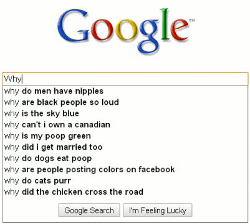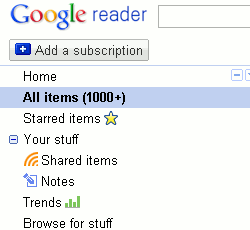
Every blogger and every user of any other social media platform has a goal. There is always something … an outcome that they hope for and work toward. Whether that outcome is making a friend, or making a sale, there is a goal.
Those goals are each different, and they are often not entirely clear to the individual, but one common thread is that we all want people to read what we have to say.
With any luck, they will subscribe, come back, read more, add their replies, and click “Like”, “Tweet”, and all those other buttons to share it with their friends.
Luck isn’t enough! They will need reasons, and everybody has their own … reasons. It is your task to find those reasons, and I have some ideas that I truly believe can help you.
Define Your Social Media Objectives
If you don’t know what you want, it will be pretty hard to achieve it, and even harder to match it with what others want. Why are you doing this? If you don’t know, how will anybody else know, and how will you measure it when it happens? I don’t think I have to remind you that it is not a perfect world, but let’s imagine for a moment.
In a perfect world, everybody will follow our website links to all the right things we really want them to read, and maybe even get to know us. Even if it doesn’t make us money, it makes us feel good to be useful, entertaining, or whatever kind of validation which makes up those goals I mentioned. Sometimes the most useful of all is that it lets us know if we’re on the right track … or not.
If it is a business endeavor, we generally hold hopes they will become a customer.
That’s a perfect world, but in the real world, it’s going to take more than just hope. It will often require some pretty extensive effort, and maybe even a little magic … such as building trust, fostering ongoing communication, and a good dose of creativity.
First of all, you must define your objectives if you ever hope to match them with their objectives. You know … them … those people whose objectives you hope to trigger.
Define Their Objectives … That’s What Really Matters
This could go into a huge topic of audience modeling, but that’s another article … and it’s in my archive with the rest of them. What I want to suggest here is that being likable, human, and considerate is like Shark Repellent.
One of the strongest most profound objectives most people have is to avoid people they don’t like or trust. Heck, I’ll avoid whole cities because there are people there I don’t like or trust. I’m certainly not going to read their marketing material or do business with them. I’d rather throw a hungry shark at them!
A flaw that I often see in business use of social media is the tone people use, and whether that tone is really just about them, or about the person reading. If you ever want to sell something … anything … the message should be about the ways it will benefit them … and not just you. Focusing on why you want them to buy something rather than why they want to buy it is not likable. It turns people off like a light switch. If you want their attention, you need to address their objectives.
The best way to solve your tone issues is often with proper intentions. That is usually something people either have, or they don’t … but it can be developed and improved.
The tone we set with our words can tell a lot about us, but those words are often based on our intentions. Your words can help somebody feel like they would enjoy having beers with you, or your words can make them want to throw a hungry shark at you. Your intent will nearly always show through with your words, and so it holds true that your intent is often what makes you either likable or shark bait.
Get on Their Beer Side
The best way I’ve found to be on the beer side of their decisions rather than the shark side is to keep my intentions in check. When I know that is in check, the next thing is be a real person, and write to people just as I would speak to them in person, or how I would write if I was sending them a letter.
You may be writing to a lot of people at once, but as they each read what you have to say, they identify with it individually. Yes, I’m writing to you. Will you write me back?
I’m not going to claim that I have this just perfect. If you’ve read my blog for any time at all, you may consider me just a bit “crusty”. I tell things how I see them, even when it is not comfortable to everybody. That’s because I’m not trying to reach “everybody”, but hopefully the ones I do reach will keep their sharks for somebody else.
If you are likable and you avoid the flying sharks, all of those hopes and goals are a lot easier. For example, I am not ashamed or afraid to tell people the outcome I hope for. Of course, there must be a good balance between being useful to others and sustaining usefulness to yourself. I try my best to strike that balance, and from my experience, that balance is a lot easier when we’re feeling like having beers together, and nobody is throwing sharks.
Be Genuinely Human … Always!
I’m not out to make everybody happy … plain and simple. I have claimed it many times that “I am not out to please everybody, and that pleases some people very much.” What I do have on my side, and something I think matters a lot is that I am here to talk to you, directly, and to tell you just the way I see it. Even if you don’t like it, you will at least know where I stand. Being a genuine human makes that more palatable.
Yes, I’m human. I have my good moods, and I have my bad moods. I have my good ideas, and I have some that are flawed. Well, not actually flawed, but I just threw that in because some people like it better when I seem more humble. 😉
I am pretty sure that if you have a blog, use Facebook, Twitter, LinkedIn, YouTube or any other communications tool, you can probably relate to this in some way. You’ve seen the fake people. So, my thought today is to reflect on just how human you are, and how human those people reading what you say are, too.
Are you being conversational in the things you say? Are you writing for people, or are you writing at them? Are you inviting them for a beer, or are you making them want to whip out a shark and wing it at you?
I consider this often, and I hope you know that I am not just writing to write … I am writing to communicate. So, here it is … my letter to you. I didn’t write it in calligraphy and seal it in a sweet smelling envelope, but I did write it for you. Keep your sharks handy, if you must.
I appreciate your interest in improving your market share with better social media marketing. I hope you find my work useful.
I am pretty sure you didn’t wake up this morning jazzed to read about marketing, but I’ve got some reading material for you. I can’t make you read it, but I sincerely believe you will find real value in the information I am sharing with you.
One of the first things to note about social media is that much of what you will encounter sounds too good to be true. That’s because it is. The world has largely been enamored by the “new” trend of social media, and so there are a lot of people still in awe by the packaging, and still playing with the bubble wrap.
I think you will find that I tend to direct people back to some common sense and rationality. I believe in things which are objective and measurable, and I like to dispel the popular hyperbole. It is my job to make companies more visible and more profitable, not to waste clients’ money.
Social media is not new to me. I met my wife and mother of our three children by way of social media, a dozen years ago. We merged our respective companies and created one of the top wholesalers of Internet access and wholesale website hosting services in USA. Our growth was largely due to the same type of marketing services I provide for hire.
I would like to share some of the things I believe every company should know before jumping into social media marketing. The link I am about to share is to a series of articles that can provide a lot of understanding about what works and does not work, and how to make good decisions for your business (even if you don’t hire me to help you).
If you dare to accept some truthful and logical advice, based on extensive experience, please see this collection of social media marketing articles.
I hope that you will read it and put it to good use. If you don’t have the time right now, I hope that you will bookmark it and come back. If you subscribe for my updates, I’ll help to remind you.
There is also a link to my bio, on that page, as well as my blog archive with hundreds of articles dealing with online marketing, including a lot of useful information about search engine optimization. It will certainly not all interest you, but it can help you with good direction for your marketing.
If you will take the time to read some of this material, I am confident that it will benefit you. If you know somebody else who can benefit from it, please share it with them, and note that I pay quite generously for referrals.
Feel welcome to contact me any time. If you decide that you want to have a beer with me, let’s put that in our calendars!
Best Regards,
Mark Aaron Murnahan
P.S.
I just want to add one more thing. Thursday is Thanksgiving in USA. Since I am writing and publishing this in between Thanksgiving-related cooking tasks, I thought I’d share this with you. Yes, it is three pounds of bacon shaped like a turkey with a Thanksgiving wish from The Murnahan Family. Cheers!

Photo Credit:
writing santa by timlewisnm via Flickr
Podcast: Play in new window | Download









